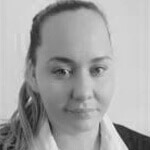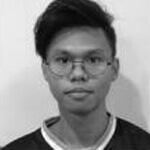Why IHNA ?
- Competency based training underpinned by adult learning principles
- Personalized attention to individual student
- Access to 24*7 online library
- Experienced educators with industry
- Easy payment options
- Finalist and Winner of national and international training award
- Networking opportunities with peak bodies and industries
- IHNA alumnus status
- Dedicated student support team
- Work Integrated Learning (WIL) – learn as you practices
Course Overview
The importance of early childhood care and education in Australia is evident. Not only do these programs provide children with a strong foundation, but they also have a positive impact on the economy. Pursue a CHC50121 Diploma in Early Childhood Education and Care to upskill your role as an educator if you are working in regulated children’s education and care services in Australia. The course will help you with an overall development in areas like:
- Support children’s wellbeing, and development
- An approved learning framework
- Advanced guidelines on recent policies and procedures undertaken by Australian government in schools and preschools.
After the successful completion of the course, you will imbibe with skills like:
- Competency
- Confidence
- Critical thinking ability
There is a huge requirement of educators in early childhood education and care in Australia in the coming years.
How much does a child care educators make in Australia?
$60,000 / Annual
Based on 2 salaries
The average Child care educators salary in Australia is $60,000 per year
IHNA (Institute of Health and Nursing Australia) is trusted by more than 22,000+ students and has been committed to providing excellence in education and training to meet the needs of the community since 2007.


Mode of Delivery
Mode of Delivery: Online Blended
Online theory with simulation workshop and work placement
This course is provided through the online, blended mode of delivery. It will be delivered over 1250 hours, including self-paced structured e-learning as per the session plan, on-campus simulation training, assessment, and 280 hours of work-based training / professional experience placement (PEP).
Students are advised that they will be required to do unstructured self-learning. Weekly support sessions are available for this course if you require any assistance.
Please call our friendly admissions team to know more about the course.
From within Australia : 1800 934 265, From outside Australia : +61 37046 7799
Career Opportunity
After the successful completion of the program the candidates may gain employment as Practice Managers in various health care settings.
- Day care centres
- Family day care
- Pre-schools
- kindergartens
Further, the candidates may pursue a three-year bachelor’s degree in education or teaching in Early Childhood or Primary school, they can opt for master’s and then PHD. Thereafter the candidate can work as:
- Early Childhood Educator
- Family Day Care Educator
- Kindergarten Assistant
- Nominated Supervisor

Course
Manager
Sanober Mahmood
MECHILD, B.Ed., Dip TAE
Sanober has started her career in teaching 20 years ago. She has both National and International experience in teaching and training in education sector. She has worked in varied settings as an Early Childhood educator, high school teacher and now as trainer and assessor. She has 7 years of working as a Childcare educator in reputed centres in Sydney.
Designation : National Course Coordinator
Years of Experience : Around 20 years

An affordable way to learn from IHNA training experts
What will I study?
15 units are required for award of this qualification including:
- 12 core units
- 3 elective units
-
CHCPRP003
Reflect on and improve own professional practice
-
CHCECE042
Foster holistic early Childhood learning, development and wellbeing
-
CHCECE047
Analyse information to inform learning
-
CHCECE050
Work in partnership with children’s families
-
CHCECE048
Plan and implement Children’s education and care curriculum
-
CHCECE043
Nurture creativity in Children
-
CHCECE049
Embed environmental responsibility in service operation
-
CHCECE046
Implement strategies for the inclusion of all children
-
CHCECE045
Foster positive and respectful interactions and behavior in children
-
CHCECE041
Maintain a safe and healthy environment for children
-
CHCECE044
Facilitate compliance in a children’s education and care service
-
BSBTWK502
Manage Team effectiveness
-
CHCECE057
Use collaborative practices to uphold child protection principles
-
CHCMGT003
Lead the teamwork
-
BSBHRM413
Support the learning and development of teams and individuals
Course Module
Total number of units for this course = 15
12 Core units
3 Elective units
Week wise learning
There is a flexibility for students to learn any unit by using our online resources at their convenience.
01

Adam Gardoll
The staff in my opinion are all supportive and friendly and I am enjoying my studies here.
02

Ashley Hartnett
The facilities are continually improving and the support I have acquired is unlike any other school.
03

Baby Aurora Trijo
The dedication, support and motivation of each staff member is great and enables students like myself to achieve their dream.
04

Christian Pascaran
The Staff/educators were very helpful to students when it came to addressing our problems.
05

Jismy Ouseph
I am really thankful to IHNA which gave me the confident and exposure to my nursing career.
Student Testimonial
It is always a pleasure to listen to the stories our students say about us!
Take a sneak peak at the inspiring stories of our students, which often leave us in tears of intense happiness and give us strength and hope
Admissions and Pathways
Although, there is no formal entry requirements for this Course, however applicants should demonstrate ability to perform task as required by the industry.
IHNA Admission requirements

Student Must hold a CHC30121 Certificate III in Early Childhood Education and Care or CHC30113 Certificate III in Early Childhood Education and Care qualification

Successful completion of an ACSF test with demonstrated competence as per IHNA LLN requirements (issued within the last 12 months from the time of admission).

Students must have International English Language Testing System (IELTS) examination (Academic) with a minimum total band score of 5.5 and minimum score of 5.0 in each of the four components of listening, reading, writing, and speaking or meets equivalent English language proficiency requirements including ELICOS at upper intermediate level.

It is also essential for students to possess basic computer skills.

Digital literacy
Student must possess basic computer skills which includes covering the most common usages of a computer, including managing computer files, word processing, using spreadsheets and databases; creating presentations; finding information and communicating using computers; and being aware of social and ethical implications of Internet use.
Additional Requirements
We have listed down a few additional requirements for professional experience placement check below:
- A satisfactory National Police Clearance / Australian Federal Police Clearance Certificate (AFP) / NCC will be required for all practical placements.
- Working with children check.
- Applicable immunization certification like COVID-19 Certificate – IHNA highly recommends students to complete the immunization process before the Professional Experience Placement start date as some facilities will not provide placement to student without immunization.
*Additional costs may be incurred depending on the fees charged by the providers to complete these requirements
IHNA Pathways
Pathways from this Qualification
Graduates may progress to higher level qualifications within and/or across the health care sector
Pathways to this Qualification
- There is no applicable pathway to this qualification.
How to Apply
IHNA Online has defined entry requirements for courses under its mandate, as outlined by its ‘Application and Enrolment Procedure for Courses,’ to ensure that students meet industry standards.

* Aboriginal and Torres Strait Islanders’ students are encouraged to apply.

Recognition of Prior Learning (RPL)
Students must submit a portfolio of past evidence, which may include third-party assessments, and partaking in an interview procedure. They can further have their prior learning and work experiences acknowledged in this certification. A practical demonstration of the portfolio presented by the students may also be used to evaluate student’s competencies and expertise, which will give the educators a clear idea. In addition to this mutual recognition and credit transfer allow students to have their previous formal training recognized.
Credit Transfer
Credit Transfer is only available for Australian qualifications when a student has completed the units considered necessary for a qualification at another registered training organization.
Evidence required
Among the other evidence, we require a list of:
- A statement of attainment or testamur and transcript is required
- If it is possible to access the students’ USI transcript with their permission; to obtain evidence of completed national recognized training.
- Applicants for Credit Transfer must complete the credit transfer application form, attach a copy of a verified Award or Statement of Attainment, and submit the application to the Course Coordinator.
- The Course Coordinator will further check the submitted Award or Statement of Attainment and grant Credit Transfer for identical units that have been identified as being completed at another Registered Training Organization.
- The student and the Course Coordinator must sign the completed Credit Transfer record.
- Student’s individual training plans will be adjusted to reflect any Credit Transfer granted.
FAQ’s
Any other questions in your mind – let us give you some more clarity with the following FAQs:

You learn a plethora of concepts and skills in a certified childhood educator course some of the skills include
- Developing curriculum and study material
- Teaching healthy and safety habits in a proper manner
- Using principles of child psychology
- Human overall development
- Helping young children with language development who has difficulty in speaking
After the successful completion of the program the candidates may gain employment in various roles such as:
- Early Childhood Educator
- Kindergarten Assistant
- Nominated Supervisor







